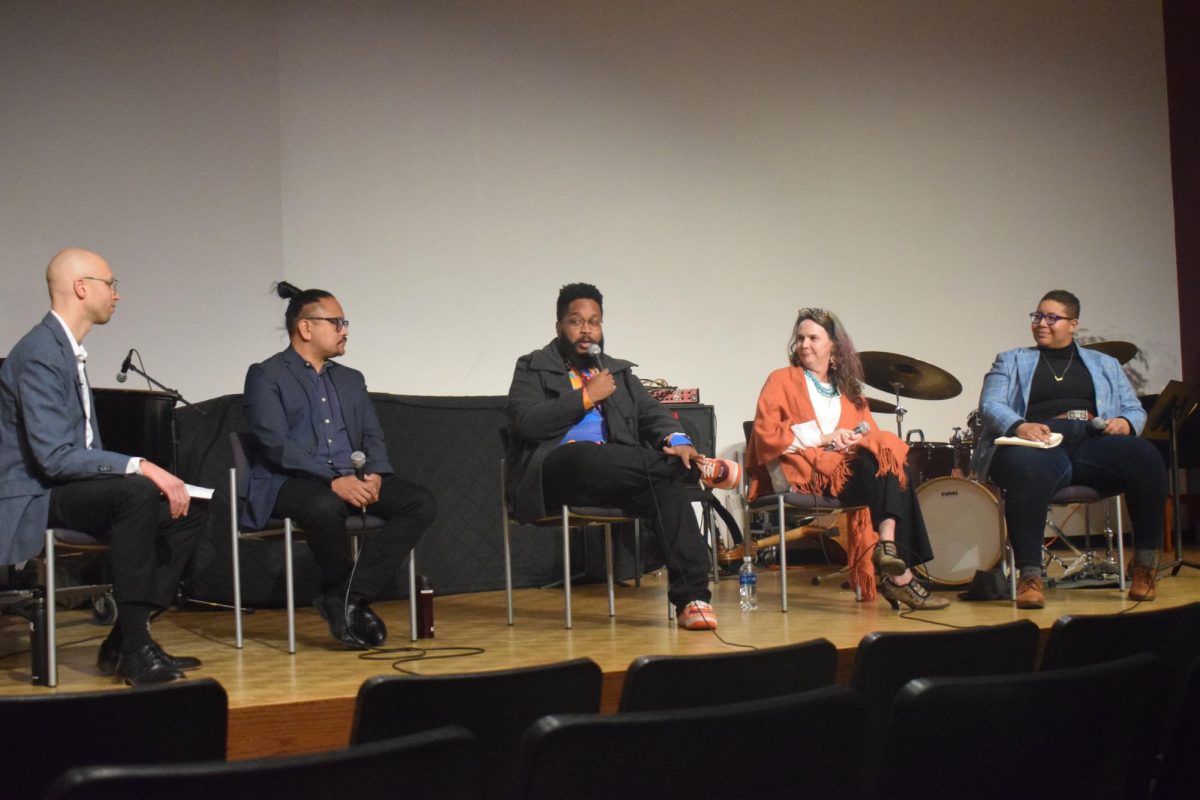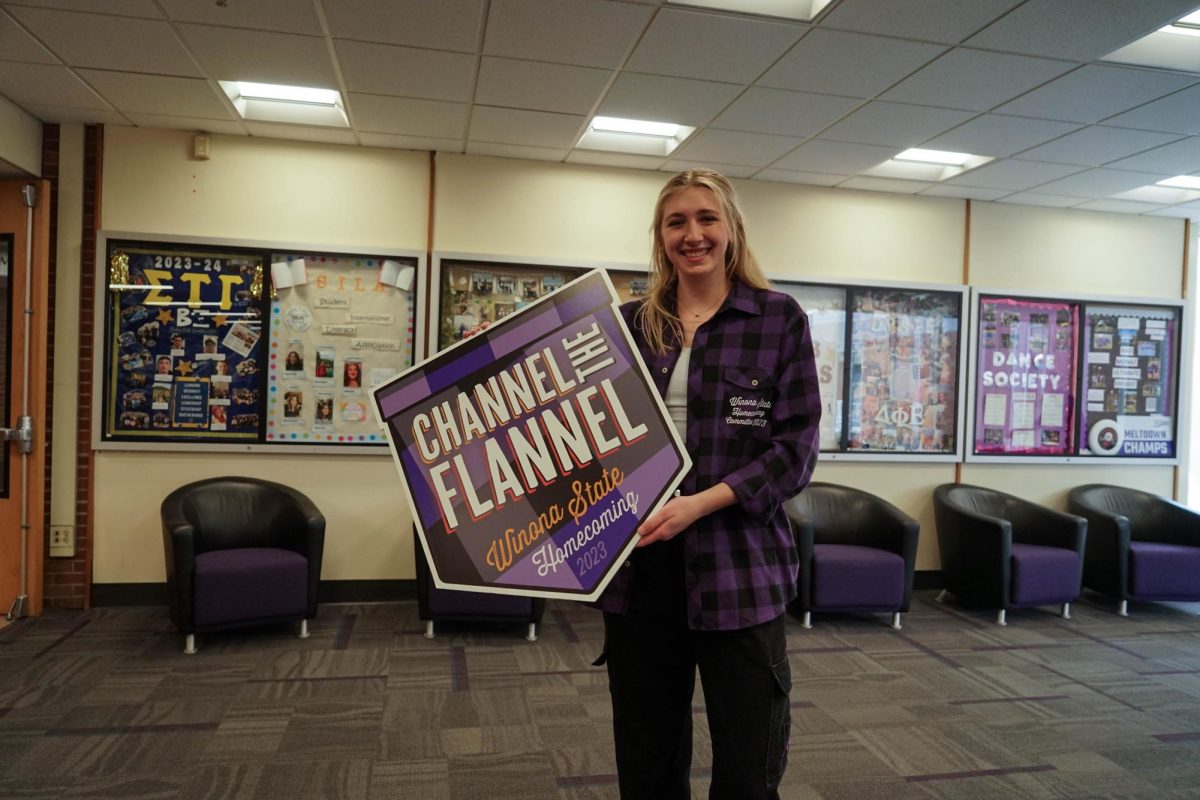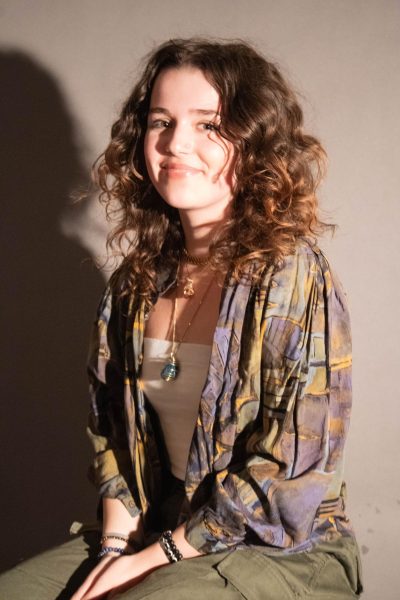This past week Winona State University hosted the Hear Me Out: Democracy, Education, and Jazz Panel Discussion. Whether the people at the event were those who are Music Educators, future music educators or if they just enjoy music and were roped in the word ‘jazz,’ there was something to be gained from this panel. Some people left with a new appreciation for music teachers while others left with a new outlook on their career, and there was truly something for everyone.
Students and staff walk into the Performing Arts Center on Thursday, March 14, 2024, thinking one way and they left thinking in a completely different direction. This change of thought happened through a moderated discussion with prolific musicians and educators Jon Irabagon, Christopher Rochester, Dr. Amy Lewis, and Jeri Gibson Neddermeyer. All of these musicians and educators are respected in their fields and offered a wide perspective of the world from their personal experiences.
In this panel, one of the most widely addressed topics was about how plenty of music education will push the fun out of music and turn it into something that students learn to fear. This is because there are rules that are complex, and in many K-12 institutions that is how students are taught to make music- via following certain rules. This pushes many students away from music after high school because they can no longer see the joy and fun that comes along with it.
Fourth-year Communications Studies major Emily Solhjem attended this panel due to her interest in music and inclusivity, which are her two minor fields.
“My biggest takeaway was [that] music is about the people who make it. We need to shift from forcing the rules to showing how the base skills can teach us the parts of music that interest us. Follow the passion, don’t push out the fun,” Solhjem said.
Not only does music education today seem to force the fun out of it, but it also tends to make students scared to take risks. Even though all the panelists found that students enjoyed playing, they also found that many don’t know how to improvise. In jazz, improvising is one of the most important aspects and for many students the fear of messing up, or playing a wrong note stops them from wanting to or even being able to improvise. This is where the notion of music being a form of “play” comes from.
On this panel, people also discussed the healing that needs to go into students at the college level because they learned that music has specific rules that must be followed to make it thought of as good.
Anna Wilwerding, a fourth-year music education major, came to this panel to learn about the history of jazz and how to teach it modernly and keep it traditional to the cultures it originated from. She also left with a deeper knowledge of how to teach students in general.
“Students today are built different. They’re tired of doing what fits in the box, but they’re too scared to jump out of it. They are in need of so much healing to find the courage to take risks,” Wilwerding said.
In music education there has been a movement by educators to start towards promoting taking risks and failing because it helps with the creation of music. Often, people don’t remember the wrong note played seconds after, yet it is hard for students who have been taught these rules their whole musical lives to break out of this shell. For many music educators and for any educator, it is important to encourage students to take risks.
“I have a lot of hopes for the future of music education,” Wilwerding said. “I hope it becomes more accessible to marginalized groups and less like an unreachable pedestal for the privileged to enjoy. And I hope that I can inspire my students everyday to take risks and be proud of themselves for who they are and what they accomplished.”
Many people don’t equate the creation of music, whether it’s jazz or something else, to be anything more than music, but that isn’t the case. All the panelists touched on how performing and making music is a democracy because you have to be there for each other and listen to more than just yourself. This way of thinking can also be applied to any form of educating from music to science, because many have found that the best way to teach is by listening to the students and asking them how they’d learn best.
This democracy extends far beyond this panel, far beyond jazz, and far beyond music, making the lessons learned at this panel applicable to any educator in the room or anyone who opened their minds to listen. Passion shouldn’t be driven out by strict rules, no matter the field, and teaching a student how to take risks is often one of the biggest hurdles any educator can overcome.































































